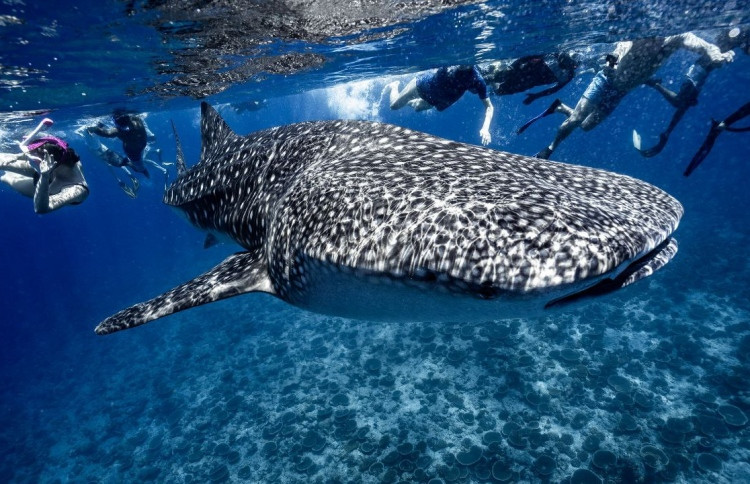

Maldives Unveils New Whale Shark Protection Policy
Sunday 1st of September 2024
The Maldives government has launched a new policy dedicated to the protection of whale sharks and their natural environment. Announced by the Ministry of Climate Change, Environment, and Energy, this initiative was revealed during a ceremony in Dhigurah, Alifu Dhaalu atoll, to mark International Whale Shark Day.
This updated policy revises the Code of Conduct for the Protection and Conservation of Whale Sharks, initially established on June 5, 2009. Set to be implemented in three months, the revised guidelines aim to enhance the preservation of whale sharks by minimizing human impact.
Key measures of the new policy include:
-Distance Regulations: Maintain a minimum distance of three meters from whale sharks and four meters from their tails. Snorkelers should stay at least 20 meters above them.
-No Touching or Feeding: Interactions such as touching, holding onto fins, or feeding whale sharks are strictly prohibited.
-No Obstruction: Ensure whale sharks’ movement is not obstructed, and avoid the use of lights or flash photography.
-Vessel Restrictions: Limit vessel approaches to whale shark sighting areas, with a maximum of three vessels allowed in a designated 250-meter contact zone. Inside this zone, vessels must travel at five knots per hour, reducing to two knots within 50 meters of a whale shark. Water sports vehicles are banned, and a 15-meter distance from the whale shark must be maintained.
-Drone and Photography Guidelines: Drone usage must be above 30 meters, and selfie sticks are not permitted in sighting areas.
This policy is a response to the increasing overcrowding at popular whale shark sighting locations, such as Hanifaru Bay and Maamigili, both known for their protected status. Despite these protections, there has been a concerning decline in whale shark sightings due to inadequate monitoring.
In addition to these guidelines, the policy includes procedures for handling sick or injured whale sharks:
-Emergency Protocols: Notify the Environment Protection Agency (EPA) immediately if a whale shark is found trapped. Use appropriate tools to free it without causing harm, and ensure any flotsam is properly disposed of.
-Natural Recovery: Injured whale sharks should be allowed to heal naturally without human interference.
Violations of these new regulations will result in fines under the Protected Species Act. The International Union for Conservation of Nature (IUCN) listed whale sharks as endangered in July 2016, highlighting the urgent need for effective conservation efforts.
Maldives Introduces Enhanced Whale Shark Conservation Measures
New policy aims to protect whale sharks from human impact
The Maldives has introduced a comprehensive policy to protect whale sharks, announced in a ceremony on International Whale Shark Day. This updated policy, set to take effect in three months, revises earlier conservation guidelines and introduces stricter measures to safeguard these majestic marine creatures.